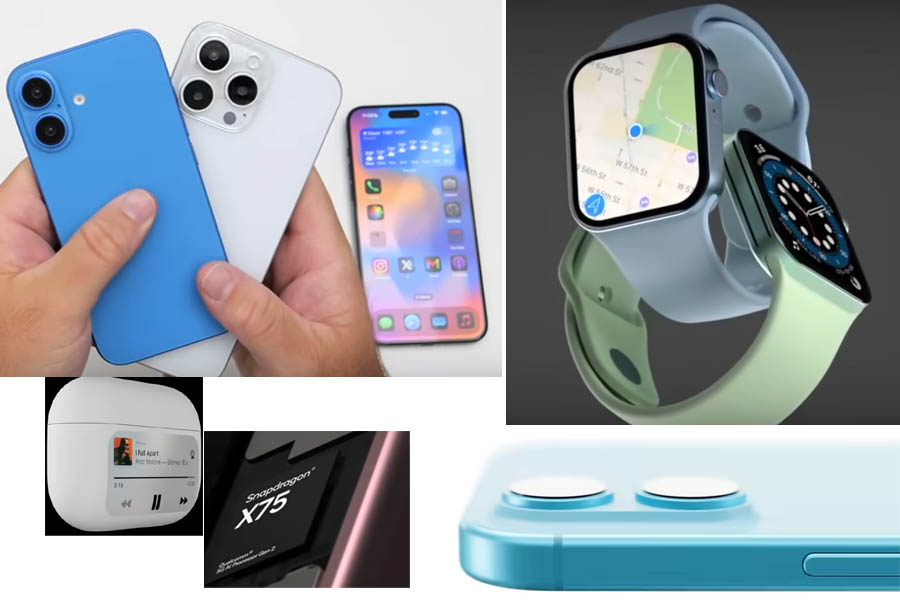
Apple Inc. is poised to revolutionize the tech world yet again with the launch of the iPhone 16 and its AI-powered feature, Apple Intelligence. Scheduled for release at the highly anticipated “It’s Glowtime” event, the new product suite highlights Apple’s commitment to innovation, user-centric design, and a forward-thinking approach to artificial intelligence (AI). In a world where consumer expectations are rapidly evolving, Apple’s dual focus on high-quality hardware and smart AI features promises to redefine not only the smartphone market but also consumer interactions with technology.
A Vision for AI Integration: Apple Intelligence
For years, Apple has been known for its cautious approach to adopting new technologies, preferring to refine and perfect before launching. With Apple Intelligence, the tech giant appears ready to embrace AI in ways that transform user interaction. What distinguishes Apple Intelligence from the competition is its deep integration into everyday apps like Messages, Mail, and even Photos. Leveraging the power of OpenAI’s ChatGPT, Apple aims to enhance Siri's capabilities, enabling more natural, intuitive conversations with users.
The concept of personalized AI assistants has long been in development, but Apple is taking it a step further by focusing on privacy-first solutions. Unlike rival companies that rely on cloud-based data mining, Apple’s AI promises to perform many tasks directly on the device, ensuring greater control over user data. This unique "on-device" processing helps alleviate concerns about privacy, a major issue in AI development. The user’s ability to opt into AI features, combined with Apple's transparency in showing how data is used, positions Apple Intelligence as a pioneering solution for both consumers and businesses looking to balance personalization with privacy.
Consumer-Centric Design: Beyond Hardware
At its core, Apple remains committed to consumer-driven design. The iPhone 16, while expected to offer the usual improvements in processing power and camera technology, will be more about experience than specifications. Apple’s product lineup, though refined, will hinge on Apple Intelligence, which aims to boost the ease with which users can handle daily tasks—from composing text messages to analyzing calendar events.
A key consumer feature is the introduction of custom emoji creation and animated image generation. Users can leverage the Image Playground to create personalized digital experiences, a playful yet powerful tool for engagement in a world increasingly driven by visual communication. Features like phone call transcription and email summarization further bolster the notion that iPhone 16 will cater not only to tech-savvy consumers but also to those looking for practical, time-saving solutions.
However, will AI integration be enough to spur new iPhone sales? Early surveys suggest that while consumer interest in AI is growing, it remains secondary to hardware improvements when it comes to purchasing decisions. Nonetheless, Apple’s gamble is that its loyal user base will adopt these new features gradually, especially as they are rolled out through updates and become more intuitive. Unlike Samsung’s AI push, which focused more on raw capabilities, Apple’s strategy is to make AI so seamless that it becomes an invisible assistant in everyday tasks.
The Business Perspective: Reinventing the Tech Ecosystem
Apple’s decision to prioritize Apple Intelligence comes at a critical time. The company faces a global downturn in smartphone sales and stiff competition from companies like Huawei and Samsung. Moreover, its upcoming battle with the Department of Justice over antitrust allegations adds to the uncertainty surrounding the brand. Despite these challenges, Apple remains optimistic about growth. Analysts predict a near 5% increase in iPhone revenue in 2025, largely driven by consumer upgrades.
Interestingly, Apple is taking a different path when it comes to AI investments. Instead of pouring billions into AI research, Apple is relying on strategic partnerships with companies like OpenAI to accelerate its AI capabilities without compromising profitability. This is a stark contrast to competitors, many of whom have aggressively invested in AI but struggled to convert those investments into revenue-generating products. By leveraging existing AI ecosystems and integrating them into its platform, Apple minimizes its risk while still participating in the AI race.
In essence, Apple is positioning itself as a curator of AI technology rather than an inventor. This approach has allowed Apple to remain nimble, avoiding the pitfalls that come with heavy R&D spending while still giving its products the edge that consumers crave. Furthermore, the introduction of AI across its devices, from the iPhone to the MacBook lineup, is expected to cement Apple’s place as a leader in the convergence of hardware, software, and AI.
Market Dynamics: The Broader Tech Landscape
Apple’s strategic moves come at a time of rapid technological evolution. As rivals such as Samsung and Google introduce their own AI-driven devices, Apple’s approach to AI differentiation will be key. While consumers have yet to fully embrace AI as a decision-making factor in smartphone upgrades, this is expected to change in the coming years. The market is likely to shift as AI becomes less of a novelty and more of a utility.
Additionally, the global smartphone market is experiencing saturation in key regions, especially China, where local competitors like Huawei have rapidly gained market share. Apple’s response to this challenge is a combination of innovation and exclusivity. The delayed introduction of Apple Intelligence in China due to regulatory concerns, for example, underscores the complexities of launching global AI initiatives.
Apple’s rivals have been quick to offer AI features, but Apple’s signature approach, rooted in consumer trust and privacy, could give it the upper hand in markets where data security is a priority. This measured rollout is not without its challenges, but if Apple can maintain its privacy-focused brand while enhancing the user experience, the iPhone 16 and Apple Intelligence could usher in a new era of AI-driven consumer electronics.
What Lies Ahead?
As Apple unveils the iPhone 16 and Apple Intelligence, the tech world watches with anticipation. The marriage of AI and mobile devices represents not just an upgrade, but a rethinking of how consumers interact with their technology. By focusing on privacy, user-centric design, and strategic partnerships, Apple is crafting a unique approach to AI that sets it apart in a crowded market.
In the coming years, the success of Apple Intelligence will hinge on how quickly consumers adapt to AI in their daily routines. If Apple’s bet pays off, we may see the iPhone evolve from a smartphone into a personal assistant, elevating both the consumer experience and the company’s bottom line. For now, the question remains: will Apple Intelligence lead to the next big wave of iPhone upgrades, or is the tech giant still one step ahead of the curve?
#AppleInc #iPhone16 #AppleIntelligence #AIfeatures #SiriAI #iPhonelaunch #smartphone #technology #Appleevent2024 #Cupertino
Thank you for reading: globalpostheadline.com





